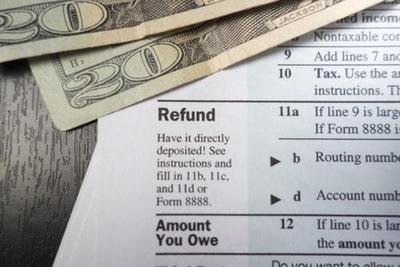New Tax Plan Will Significantly Impact Spousal Maintenance
 There has always been some confusion regarding spousal maintenance or alimony. Each state has its own rules and procedures for determining who should get spousal support and how much payments should be. However, one rule which is, for now, the same across the country is how maintenance payments are taxed. For the last 75 years, maintenance or support payments have been deductible for the payer. The recipient of the support is responsible for paying income tax on the funds. After Dec. 31, 2018, this will no longer be the case.
There has always been some confusion regarding spousal maintenance or alimony. Each state has its own rules and procedures for determining who should get spousal support and how much payments should be. However, one rule which is, for now, the same across the country is how maintenance payments are taxed. For the last 75 years, maintenance or support payments have been deductible for the payer. The recipient of the support is responsible for paying income tax on the funds. After Dec. 31, 2018, this will no longer be the case.
Maintenance Payments No Longer Deductible
Under the Tax Cuts and Jobs Act, spousal maintenance will no longer be deductible for the payer, and taxes will not need to be paid on it by the recipient. This could mean that those who get divorced in 2019 may be paying a much higher amount in spousal support than those who get divorced in 2018. Because spousal maintenance is paid by the spouse with a higher income to the spouse with a lower income, it made sense to place the tax burden on the person receiving funds. The lower-earning spouse generally has a lower tax rate than the higher-earning spouse.
With the new law, a higher-earning spouse will not be able to deduct the amount he or she pays in maintenance from his or her income. This will make maintenance payments even more financially burdensome. Some are also concerned that the new tax law will mean less money for those who receive alimony. Without the tax deduction, a payer spouse will simply have less money from which to pay. The change could negatively affect recipients of spousal maintenance in unexpected ways as well. For example, certain retirement account contributions often have to come from taxed income. This means that a person receiving spousal maintenance may not be able to add those funds to such a retirement account anymore.
Tom Leustek is the founder of New Jersey Alimony Reform, an advocacy group working to change spousal maintenance laws. In a report he explains, "The two households created by a divorce simply cannot function as cheaply as the single household of an intact family. The present tax structure that helps ameliorate those burdens has now been eliminated."
Let Us Help
If you are considering divorce, you may be unsure of all the ways that the new tax plan could affect your divorce. The dedicated Naperville divorce attorneys at Pesce Law Group, P.C. have the experience and skill to help you figure out what course of action is right for you and your family. Call for a free, confidential consultation at 630-352-2240 today to get started.
Sources:
https://www.cnbc.com/2018/02/04/loss-of-alimony-tax-break-may-pose-problems-for-divorcing-couples.html
https://www.marketwatch.com/story/under-trumps-tax-plan-divorces-are-about-to-get-a-lot-nastier-2017-11-03











 630-352-2240
630-352-2240



